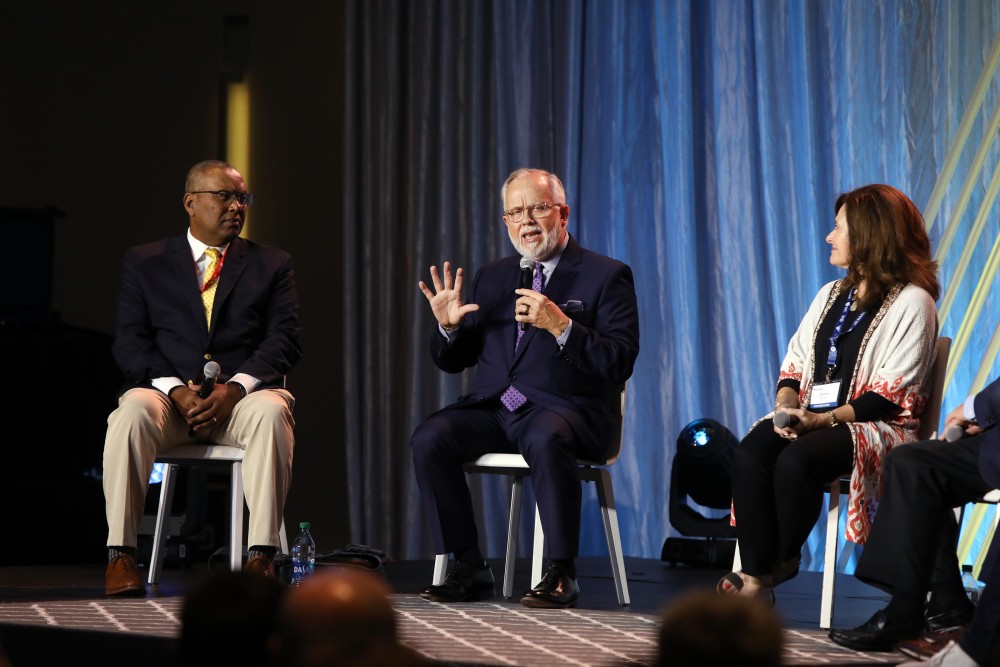In Nashville, an eventful annual meeting for Southern Baptists

More than 15,000 Southern Baptist Convention leaders and pastors gathered in Nashville, Tennessee, June 15–16 for the first annual meeting of the nation’s largest Protestant denomination since the start of the COVID-19 pandemic.
The months leading up to the event were filled with tension. Public divisions over issues of race and gender were exacerbated by two high-profile exits from the denomination: popular author and teacher Beth Moore in March and Russell Moore, who led the denomination’s public policy arm for eight years, in May. A letter penned by Moore and leaked to the press in late May blasted the SBC for its explicit racism and its failure to address sexual abuse within its affiliated churches.
For many participants and observers, the 2021 annual SBC meeting served as a bellwether for the future of a denomination seemingly at war with itself. Here are some of the highlights from the event.




